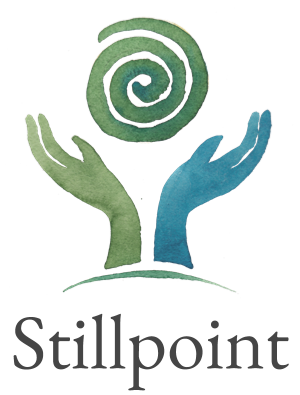Reflecting Our Sacredness
By Cindy S. Lee
Howard Thurman writes in his book The Creative Encounter that when we enter into prayer we carry “the smell of life” on us. As an Asian-American woman, I’ve felt this acutely over the years as there seems to be unrelenting waves of communal grief and anger our nation caused by the violence and callousness of white supremacy and the ways in which this ideology impacts us all regardless of our ethnicity or the color of our skin. Our human capacity for and encounters with hatred, violence, or just unkindness leaves a stench. So even as I encounter the sacred, I continuously carry my despair, disillusionments, doubts, and hopelessness into my sacred space of prayer. Thankfully, in prayer we encounter a gracious and loving presence that receives us fully with all the stuff of life we carry with us.
We live in a world that constantly denies our sacredness. The spiritual life, however, facilitates a sacred ‘seeing’ in which we intentionally connect with the divine sacred in order to see the sacredness in our selves and in those we encounter. This is precisely the power of the spiritual life that Thurman and other BIPOC (Black, Indigenous, People of Color) contemplative voices have discovered. Spirituality is not simply for respite and rest, but it is for our survival. Without this sacred seeing our souls wither. Prayer is the inner work we need to see ourselves and others rightly.
As a spiritual director that meets primarily with BIPOC directees my role is to facilitate a space for this sacred seeing. BIPOC communities are especially surrounded by messages and systems that daily deny our dignity and worth. For BIPOC communities to experience our sacredness we need to be settled into our own bodies, experience the traditions and spirituality of our cultures, and engage with community that reflect our sacredness back to us.
I wonder when you might have experienced your sacredness denied?
I am grateful for the opportunity through Stillpoint to co-facilitate a Spiritual Journey group this year with Colleen Thomas that centers a BIPOC spirituality in the hopes of offering programming more broadly that is reflective of the sacredness of all ethnicities, races, and cultural groups. As an Asian-American I’ve been formed all my life to center the white experience. Growing up I was taught a white-centered history and curriculum. Even now I work in institutions with white-centered values. The opportunity to center BIPOC experiences of spirituality is both restful and exciting. Even more, I’m excited for Stillpoint to continue in their work of growing into an organization that actively works to de-center whiteness in order to be a restful and restorative place for a diverse world.
Note from the Executive Director: Conversations on healing Racism and the role spiritual companionship may have in this work, have been ongoing in the Stillpoint community amongst the board, faculty and staff in an intentional way prompted by the public murder of George Floyd in May of 2020. As we as a community commit to naming our desired values as well as shortcomings in a working document we call Stillpoint’s Anti-Racism Covenant we accept that the tough conversations are part of a necessary journey toward growth in our awareness of the limits of western culture in our program curriculum and in our invitation to the contemplative life community. The work of racial reconciliation and healing is our work to do. Your prayers are desired and your participation in the dialogue welcomed. Feel free to reach out to me (erechter@stillpointca.org) or Ravi Verma (ravistillpoint@sbcglobal.net) for more information.


